Industrial Machines What to Know?
Does anyone have much experience with the Industrials? Is it worth getting one if I am sewing a lot of denim, heavy canvas, and webbing? Does anyone have some suggestions for me? Are there any features that you have found that you cannot live without? How much rpm do I want? Are there any that are fairly versatile? I am sewing jeans, bags, leather, and 15 lb vinyl sandbags with webbing on them, and want something that I can grow into.
Any help and/or suggestions will be greatly appreciated
Thanks


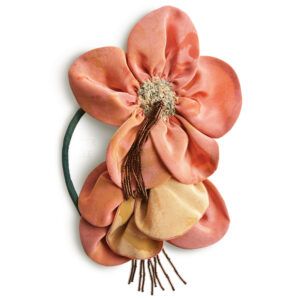
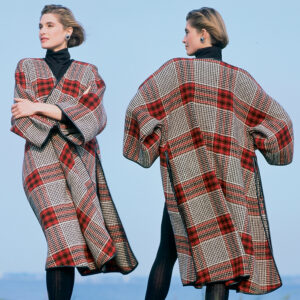
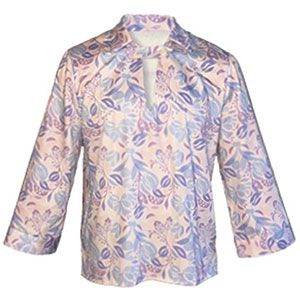
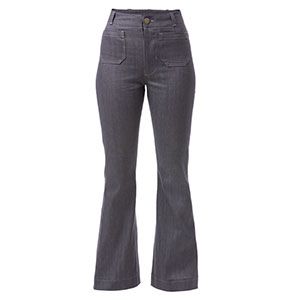
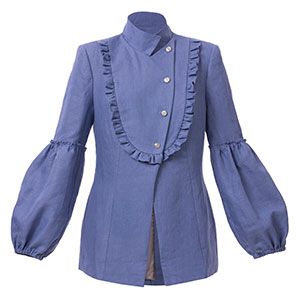
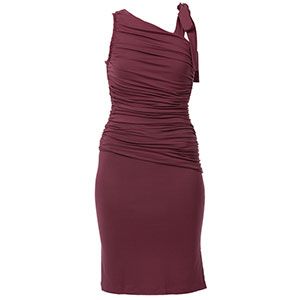
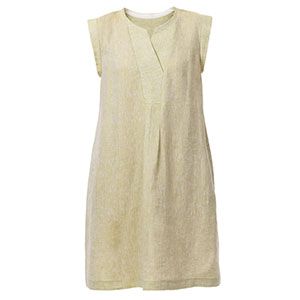
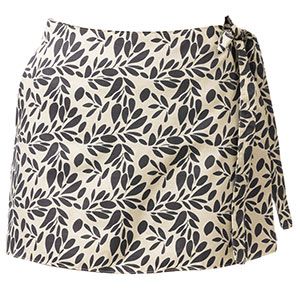
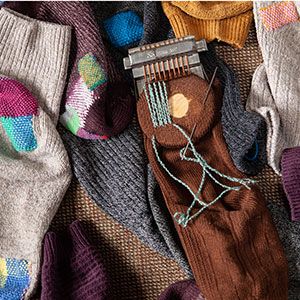
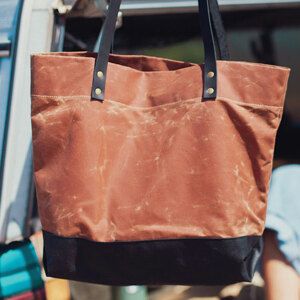
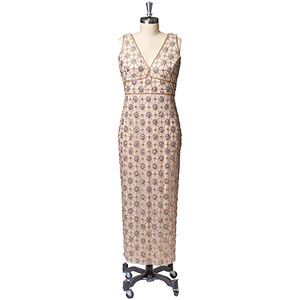
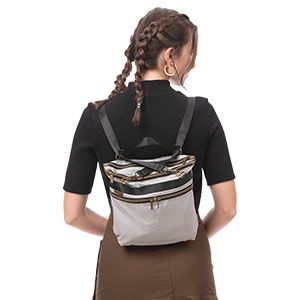
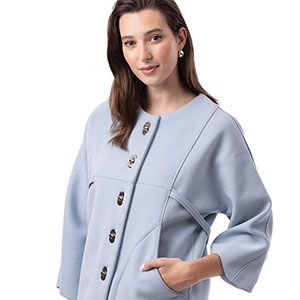
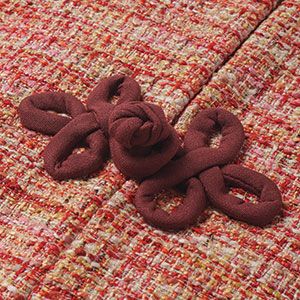






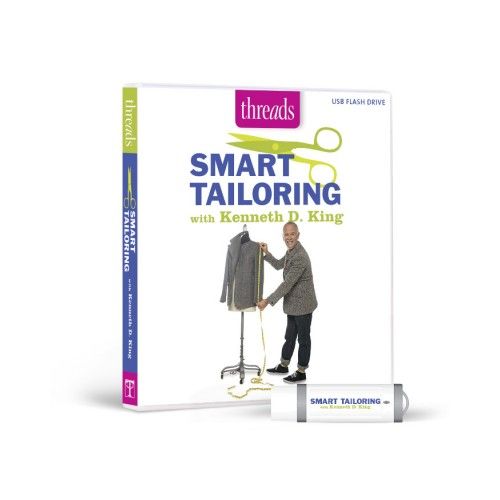
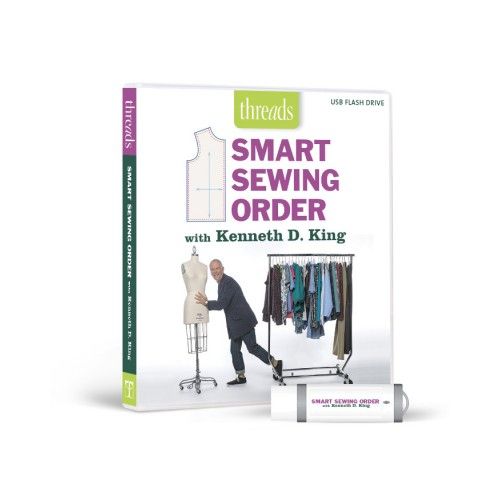
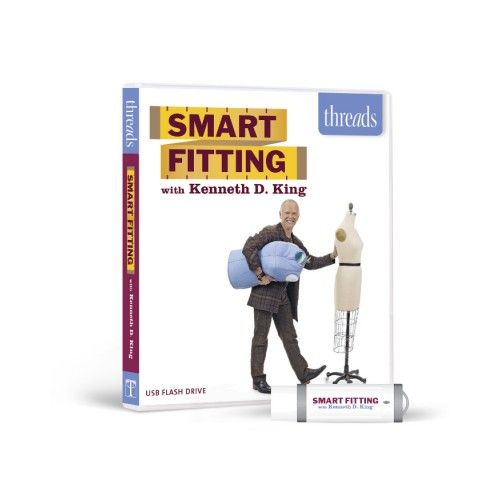



Replies
An industrial is certainly "worth it", if you do a lot of sewing, no matter what you sew. This is a wide open topic. Do your homework before you buy.
New industrials come according to the use you plan, such as light weight, medium, and heavy. If you mostly do lingerie, you would use a light. It sounds like you might need one that will handle heavy weight fabrics. Find a dealer and look at what is available.
My experience involves a Juki 9000 and an old Singer. I loved the way the Singer worked, but hated the sound and vibration of the clutch motor, so I sold it. It sounded like the tanks in "Private Ryan". Was sorry that I didn't have an industrial anymore. When I discovered the Servo motor, I bought the Juki. The Servo only operates when you want the machine to work. The clutch motor is constantly on.
My Juki is for medium weight. That doesn't mean I can't do denim, upholstery weight, or lace, I can. It just means it would be better to have a heavy weight, if that was all I did. It has a computer component that allows me to set needle up/down, cut the thread, sew a square (don't use that much), and regulate how fast the machine will go.
If you have never used an industrial, they can be a bit intimidating, at first. After you get used to one, home machines go sooo slow. I still need my home machines for buttonholes, fancy stitches, etc. There are industrials that do more than SS.
If you have specific questions or want more information that I can supply, please ask.
MaryThank you so much for the valuable information, I get headaches really easily so I guess that I will have to take in to account the noise factor. I guess that my biggest problem is that I do not have a dealer in my area, so I have to find another way to research machines.Okay, the fancy stitches are really not an issue for me (I don't even use them much on the machine I have now) but some companies advertise that they have a "walking foot" and others are all about the "big hook." Then don't even get me started on the motor size (0.4-3 amps,) number of stitches per inch, self oiling motors, single needle vs double needle, clutches, cervos,...AAAAHSo here are my questions:1) Are the walking foot and big hook traditional features that you would expect to see on an industrial? Are the dealers just selecting a standard feature to sell to those of us that are still a little "touched in the head" about these issues, and if so, is there one or the other feature that is a must have?2) Did you find a huge difference in the function of your two machines (assuming the motor size was different?) Is there a base number of amps which I should be looking for? 3) Single needle vs Double needle - Are the needles not interchangeable as in a regular machine? Is the double needle machine just for sewing with a double needle, and vice versa? 4) Do you find that your industrial is costly or time consuming to maintain? Does the thought of a self oiling machine make you tingle with excitement, or could you really care less?Jeepers this is long, and I am so sorry. Thank you so much for your help, again.
This is an interesting discussion and I too am really interested in learning about this subject. Yes, where on earth would you shop for these machines? eBAy? other on-line dealers?
Michiana;There are a dizzying amount of industrial machines on ebay, surprisingly ranging in price from $10.00 to $3000.00 - really I found one for $10.00!!!
WARNING!! There are a ton of sewing machines listed on eBay that are described as "industrial" in some manner, but aren't really industrial machines in by any stretch of the imagination!!!! It's cowpucky!
Basically, most machines fall into one of these basic categories:
Domestic/ household: only intended for household or domestic use. May sew thick or heavier fabrics, but not at a comercial or factory output level
Portable Commercial / Cottage applications: Motor and machine are a combined unit, looks alot like a standard household machine, but the warranty will cover light commercial use, like alterations or a home-based business.
Industrial: big machine head, seperate servo clutch and motor, and mounted to a large industrial type table. Made to sew for hours and hours, day after day. May be intended for use with only light, medium or heavy fabrics and often have specialized applications. Not all industrial machine are intended to sew thick or heavey fabric.
For tips on buying on eBay :http://sewing.patternreview.com/cgi-bin/review/readreview.pl?ID=1220
Thank you for the warning, I have been trying to puzzle out where the "commercial" grade machine fits into the whole picture. I have been looking specifically for a machine that is set into a table. Trying to hold 20 lbs of sand 3 inches above the table so that I can run a seam through it has become quite annoying. (I am making counterweight sandbags)
There are industrial machines that have the walking foot built into the machine. You can buy an attachment walking foot for a SS machine. I have one. They aren't very rugged and you have to be careful to sew slow with them. A walking foot machine is really great if that is what you need. You probably don't need one.
I have no idea what the "big hook" is. I have never heard that in reference to an industrial machine. That doesn't mean it might not be important, I just don't know what it means.
If you buy a machine from a reputable dealer, the dealer will know what size motor you need to power the machine you buy.
There is/was a huge difference in the two machines I have had, not because of size of motor or machine but because of age. The Singer I purchased from a defunct factory auction. My Juki I bought brand new a few years ago. The biggest difference was the motor. Both sew a beautiful SS. The Singer had an oil pan and the oil circulated throughout the machine while running. My Juki is self oiling. There is a system to deliver a tiny squirt of oil to the hook and I have to keep that reservoir full, but I have never had to add anything since I got the machine. I could smell the oil in the Singer, but never even notice it in the Juki.
A SS machine will use only a single needle. There are some machines like the Bernina industrial that will do both a SS and a ZZ. With that machine you have the best of both worlds in that it does some of the things a basic home machine does. I rejected it because there wasn't enough space under the arm for quilting for me. I probably would have bought the Bernina if the space were not an issue. The Bernina probably would take a double needle.
Any service I might have to have has to be at my home. There is no way I could get my machine to the dealer. I did have to have one service call. I did not have the needle in tightly and it fell while running the machine and scratched the hook. The service call was $100.00. It was my fault. I clean my machine regularly and have never had a problem other than that one time.
Yes, you can find industrial machines on eBay. But, buyer beware. You will also find unscrupulous sellers who say things like, "industrial strength" when referring to a home machine. Please, do your homework before you buy so that you will not be disappointed. Since you are not near a dealer, do some searches and look at the machines on websites such as the Juki website. I am not saying Juki is the one to buy, I just know you can see many different models on a manufacturer's site. The more you look and read, the better you will know what you want. This will help even if you plan to buy a used machine. I have seen some really great deals on Craigslist. You can replace a clutch motor with a Servo motor. This adds to the cost, but I would find it necessary if I were to buy a used machine.
It took me over a year to decide to buy my Juki. I kissed a lot of frogs to find my prince.
Thank you Mary, you are an absolute doll for taking all this time. I will continue to research and take a trip to a bigger center to find a dealer. Your help has cleared a lot of fog.
You are welcome. If you have more questions, ask away. I know sometimes when you are first learning, it is hard to know which questions to ask. After you look around, you may have more questions.
Hi TMorris:
Greetings froma fellow Canadian sewer (on the West Coast). I do not own an industrial machine but used them for a four year period when I worked at a tailor shop. My words of advice are: Do not buy one unless there is a qualified serviceperson in your area. In my experience, with proper maintenance, very little goes wrong with these machines, but when they do go wrong it's usually in a big way. Make sure that you can order replacment needles and that you know the proper codes for the different sizes. More often than not, used industrial machines do not come with the handy information booklet that accompanies domestic machines -- and trying to figure out what kind of needle to order is horrendous (they often have absolutely NO markings on them - not even size numbers sometimes). They can be intimidating to use (at first) and will happily sew through your finger (bone and all) just as easily as cotton sheeting. Make sure that the machine comes (attached to) an industrial sewing platform/table. I would also be extremely hesitant to purchase any machine (i.e. on the Internet) without being able to test it out. Shipping costs might put a bit of a dent in your pocketbook as it take two people to lift a machine just to move it.
On the plus side, once you get used to the speed, strength, smoothness and consistency of an industrial machine, every domestic machine you sew with will seem frustratingly slow and weak and toylike. With the proper needle and tension, these machines can tackle fine fabrics, multiple layers of demin and leather with equal ease and finesse. They are a joy to use on long straight seams (curtains, bedding, etc.). I really, really miss sewing with the power and speed these machines are capable of.
Are you looking for a chainstitch machine? Do you need to do zig-zag? One of the biggest drawbacks to the industrial machines is that each is usually confined to perform a single task. For example, we couldn't make buttonholes on our industrials because they didn't have a stitch width feature.
I hope this helps. If you have any specific questions, please don't hesitate to e-mail me.
K
KSee,,,the whole finger thing...it makes my bladder weak just looking at those machines. But there comes a time in everyones life when they just have to suck it up, pee their pants, and sew their finger to their brand new drapes!!! (oh I hope it's just my pinkie)Admittedly, I have been doing a lot of looking online, because I am in the Praries. It really is a bit of a drive to get to a dealer. In fact, I bought my machine at Sawyers in Victoria then carted it out here on the plane. I have seen a lot of machines that say they are industrial, but are obviously portable. Is this a "commercial" machine? I am quite sure that I would want a machine with the motor attached to a table. It is my understanding that the motors can easily be replaced on these machines if they die, is this true? I am looking for a SS machine, I would like it to go both forward and back, but I think that is really it. I had asked before about the double needle vs single needle machines, do you know if these are interchangeable? I like to do a bit of double needle topstitching, if I were to get a double needle machine could I still stitch on it with a single needle? Does it work the other way around?Thank you for the info. I may just have to make a trip to the coast for my dream machine. Don't think I could bring this one back carry on though lol.
I was having a bad day...then I read your note about sucking it up, peeing your pants and sewing your pinkie to the drapes. you've lightened my mood immensely!
tmorris1, check out http://www.allbrands.com/ industrial machines. I recommend the site simply because they have a lot of information about different machines. I have never purchased from them, but would not hesitate to do so. So many industrial web sites simply tell you to call for information.
I have to second what Ralphetta said!!I have been having a lot going on personally and I tell you what!! Just reading this thread and your words just made me giggle and smile!That quote of yours I just might have to take it to everyday life at times!!I was with you when she mentioned about the finger!! Wow I so got that visual!!Thanks again for your wonderful sentence I needed it for today as wellBlondie
Edited 4/17/2007 3:56 pm by blondie2sew
Hi again T:
Sawyer's! That's where I get my serger serviced -- Victoria's only an hour and a half's drive from where I live (Nanaimo).
Re: stitching thru fingers. This hardly ever happens outside of an garment factory setting. The professional I worked with said that in her industrial workplace (20 years previous), one wasn't considered to be a 'real seamstress' until they'd had the (dubious) honour of stitching through one of their digits. Somehow the idea of sewing so fast that you actually lose track of where your body parts are supposed to be doesn't appeal to my sense of machisma. I mean, there's fast; and there's too fast. All my fingers are happily unpunctured, by the way.
Re: double/single needles. I have wracked my brain (to no avail) trying to remember if the Cdn company we ordered industrial needles from had double needles available or if we had throatplates for such. We never used them in any of the machines in either of our shops, but we didn't do enough double topstitching to even warrant ordering any. I checked the internet for sources, but came up empty. I do recall that the machines we used had a very small hole in the throatplate and no provision for altering the needle position. That would imply that if a double needle were to be used, the throat plate would have to be replaced with one with a wider hole. So if model that you were considering had a such a replacement plate, that would imply that it could handle a double needle.
Krichmond;Thanks for all of the info, with all of your help, I am sure that I will be a "true" seamstress in no time. (I really am the biggest klutz)Isn't Sawyers wonderful? They searched my area for me when I bought my machine and arranged for the traditional 1 year service call in my home in Saskatchewan...for free. THAT is customer service. Too bad I can't convince them to move to the praries lol.Guess that I have to do a little more investigation into the double needle thing, but your info was great. Anything else you think of, let me know.Mary and gogo, I am headed off right now to check those web sites, thanks for the links.
Edited 4/17/2007 5:12 pm ET by tmorris1
Replacing the throat plate to a wider hole on a SS machine will not allow the machine to accept a double needle. If you look at the underside of the double stitching done on a home machine, you will see a zigzag that engages both needle stitches. A SS machine cannot do this. The double stitching on your jeans is done with a chain stitch (special machine). This is much more efficient because no bobbins are involved. If there is a machine that does a lockstitch double needle, it would require two bobbin systems.
There is a presser foot available with a finger guard. That doesn't guarantee that you can't stitch through your finger, but it is a little protection. I think mine came as standard equipment on my Juki. There are lots of different feet available for an industrial machine and they are generally cheaper than for home machines.
t, another thought is to buy a machine that you can service, yourself. In addition to my Juki, I have a Wheeler and Wilson industrial treadle. I have taken it all apart, including the treadle base, cleaned and oiled and put it back together. I don't need anyone to service it for me. I am not suggesting you buy a treadle. My Juki is my "go-to machine every time. I am just saying it is possible to learn to do your own service.
No one has mentioned the semi-industrials. Brother and Juki both make a machine called a semi-industrial. When I was kissing frogs, I tried out both of these. They are fine machines, but more toward a home machine than an industrial. Neither had the same feel as an industrial. They just seemed to me to be home machines with more space under the arm.
You can always replace the clutch motor with a Servo motor to reduce the noise. If you were to buy a used machine, you could do that. I don't know how you do that, but it can't be that hard to learn. If you buy a new machine, you could specify that you want a Servo motor. That will change the cost (higher), but you wouldn't have to pay for the clutch motor.
Thanks for the Info Mary, I am pretty handy with the mechanical things, and think that I could probably learn haw to fix this stuff. The needle guard is a good Idea, I didn't know about that at all. Maybe I wont pee myself after all. I am sure that I will want a cervo motor on the machine, so I will have to factor in that cost. I have considered the semi industrial machines think they are also referred to as commercial, and they just seem to be a machine that really isn't very good at either job. So much to think about. Thanks for helping to clear the fog.
You are hysterical. I look forward to your humor when I log in.
Lol, thank you very much Josefly, you can read more of the tmorris1 show under "Ridiculous Sewing Projects" let me know what your is!!
You might want to consider a portable industrial walking foot for the vinyl and leather work. I have this one that I got from ebay a few years ago, and it is a workhorse.
http://cgi.ebay.com/alphasew-industrial-walking-foot-machine-pw200-p_W0QQitemZ230080684619QQihZ013QQcategoryZ3118QQrdZ1QQssPageNameZWD1VQQcmdZViewItem
It's a knockoff of the sailrite ls-1, but half the price. The best part is that you can put it in a closet when you're not using it or take it with you if you need to.
http://sailrite.com/102500
I have thought about the portables, are they really that powerful, or are they more like a home use? I saw a person once sew on an industrial until there was smoke coming off of her needle from the friction. Do you think that yours could handle this? Do you use regular needles, or industrial? Are they hard to find or install? Oh, and heres the big question...If someone put your machine and a standard industrial beside each other and told you that you could have either one, which would you pick?
If money and space were no object, I would definitely have a Consew 206 RB walking foot full size industrial. But the portables are surprisingly powerful and much faster than home sewing machines. They use industrial needles, and I get them online for cheap. I did my car seats using this machine and it went through multiple layers of vinyl no problem. BTW, I posted pics of the car seats quite some time ago on the boards here in the picture section, and they are still there.
I used to work in a sail loft, and sewed on several different types of industrials. They're nice when they work, but if you don't have the resources to fix it when it needs adjusting, you'll be stuck.
Wow, 33 hundred stitches per minute!!! That machine would make short work of just about anything. The servicing thing worries me. I guess that unless I can find someone local (which I cant) I would have to drive the machine a minimum of 8 hours to get it serviced, and that doesn't sound cheap at all. Or quick for that matter. Guess I will have to go back to the thinking outside of the box thing. Your information has been wonderful, I am going to look for the Consew, or at least use the Consew's specs as a base line for what I buy in order to get something similar.Did you find the Consew loud? I get headaches pretty easily and found that I had to factor this into the purchase of my home machine. Maybe I can put up some of those nice fabric panels to dampen the sound a bit.
Define loud, cuz I have two teenagers, and the Consew is no match for them. I've only used the Consew in a manufacturing environment, so I can't really judge how loud it would be with nothing else going on. However my portable industrial is louder than your average home machine, because it has a more powerful motor.
Hope this helps,
Jo
I'm not familiar with industrials....my dad has a large leather sewing machine, very similar to the inexpensive ones they sell at Harbor Freight. I don't know that this would be anything to help you in any way, but I hope you find what you are looking for reardless.
This post is archived.